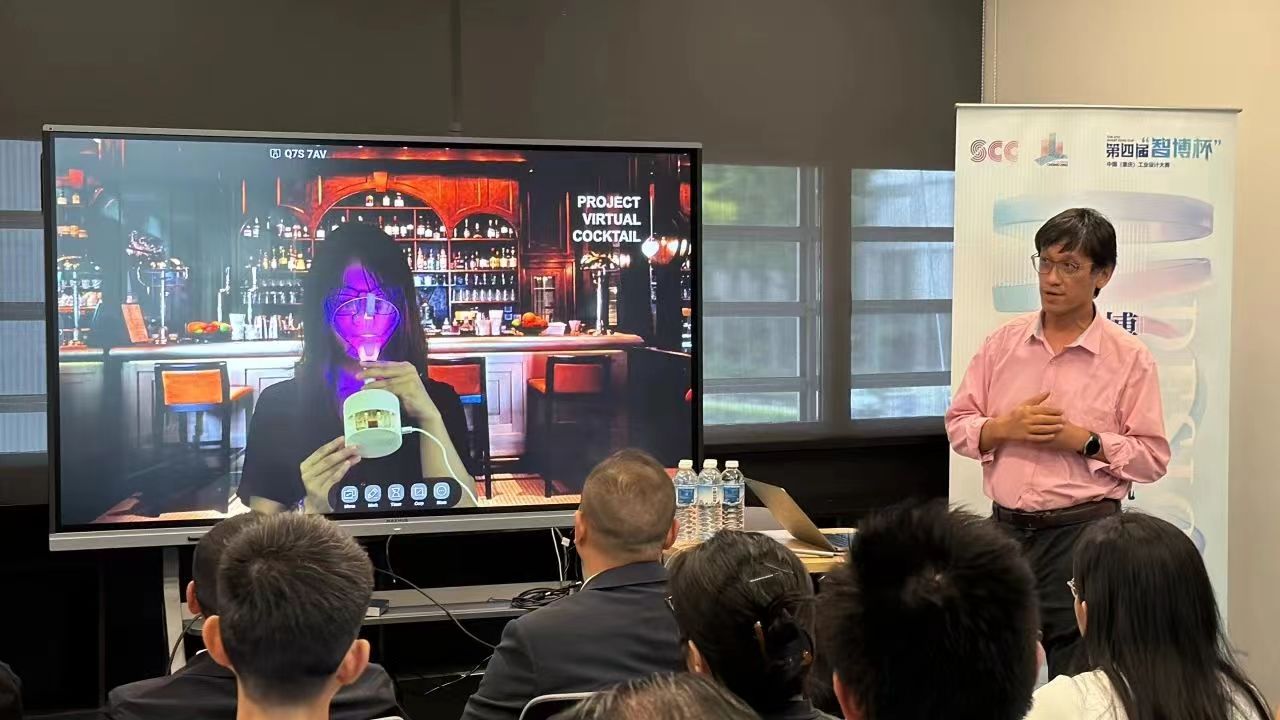 Bridging News
Bridging News
Singapore-China Design Dialogue Concludes with Experts Discussing Design Trends
Chongqing - The Singapore-China Design Dialogue made its debut at the recently-concluded Singapore Design Week (SDW), one of Asia's premier design festivals. This festival united leading designers from China and Singapore.

Guests shared their experience with industrial design. (Photo/Singapore-China Design Dialogue)
Yu Wenhuai, founder and general manager of Chongqing Dusse Technology Co., Ltd., highlighted the evolution of motorcycle design in China, underscoring Chongqing’s global reputation as a motorcycle hub.
Founded in 2007, Dusse Technology started with industrial design and now serves industries such as new energy vehicles, motorcycles, and general machinery. The company has completed over 2,000 product design projects for clients, including domestic and international brands like Lifan and Zongshen.
Yu pointed out that motorcycling has transformed into a fashionable lifestyle. He emphasized the importance of companies embracing a user-centric approach by innovating products and creating a lifestyle experience for consumers.
Another Chinese representative, He Bo, deputy manager of SIMECO Group, shared insights into the seamless integration of industrial design with intelligent manufacturing.
The group's smart factory boasts cutting-edge capabilities in various processes such as mold, molding, coating, and assembly. He emphasized the firm's efforts in fostering deep partnerships with Singaporean entities in precision manufacturing and medical devices, as well as in academic and research collaborations.

The event brought together designers from China and Singapore for exchange. (Photo/Singapore-China Design Dialogue)
On the Singapore side, Donn Koh, co-founder of Stuck, an award-winning design innovation agency, discussed the future of product design and the role of artificial intelligence.
Koh explained that Stuck’s design philosophy focuses on creating innovative products. They have designed a bendable mouse for Microsoft and a smart nursing home in Singapore. Koh emphasized that while AI can enhance the design process, the user experience is paramount, and AI should aim to improve that experience.
Yen Ching Chiuan, Director of the Creating Unique Technology for Everyone (CUTE) Center at the National University of Singapore, discussed design-driven innovation in various fields, including advanced manufacturing, healthcare, and environmental sustainability.
Yen introduced a unique project that utilizes embodied sensory interaction through taste, smell, and vision, highlighting the center's focus on experiential media design through user-centric approaches.
The Singapore-China Design Dialogue, co-hosted by China-Singapore (Chongqing) Industrial Design Co., Ltd. and Stuck, was a key feature of this year's Singapore Design Week.
The event concluded with a dynamic panel discussion between Chinese and Singaporean design experts and the audience, where they exchanged ideas on the evolution and trends of the design industry in both countries.
The dialogue illuminated the unique design practices, discussed the contextual differences influencing these practices, and opened avenues for potential collaborations and new development opportunities.
(Ma Manlin, as an intern, also contributed to this report.)
 Related Stories
Related Stories